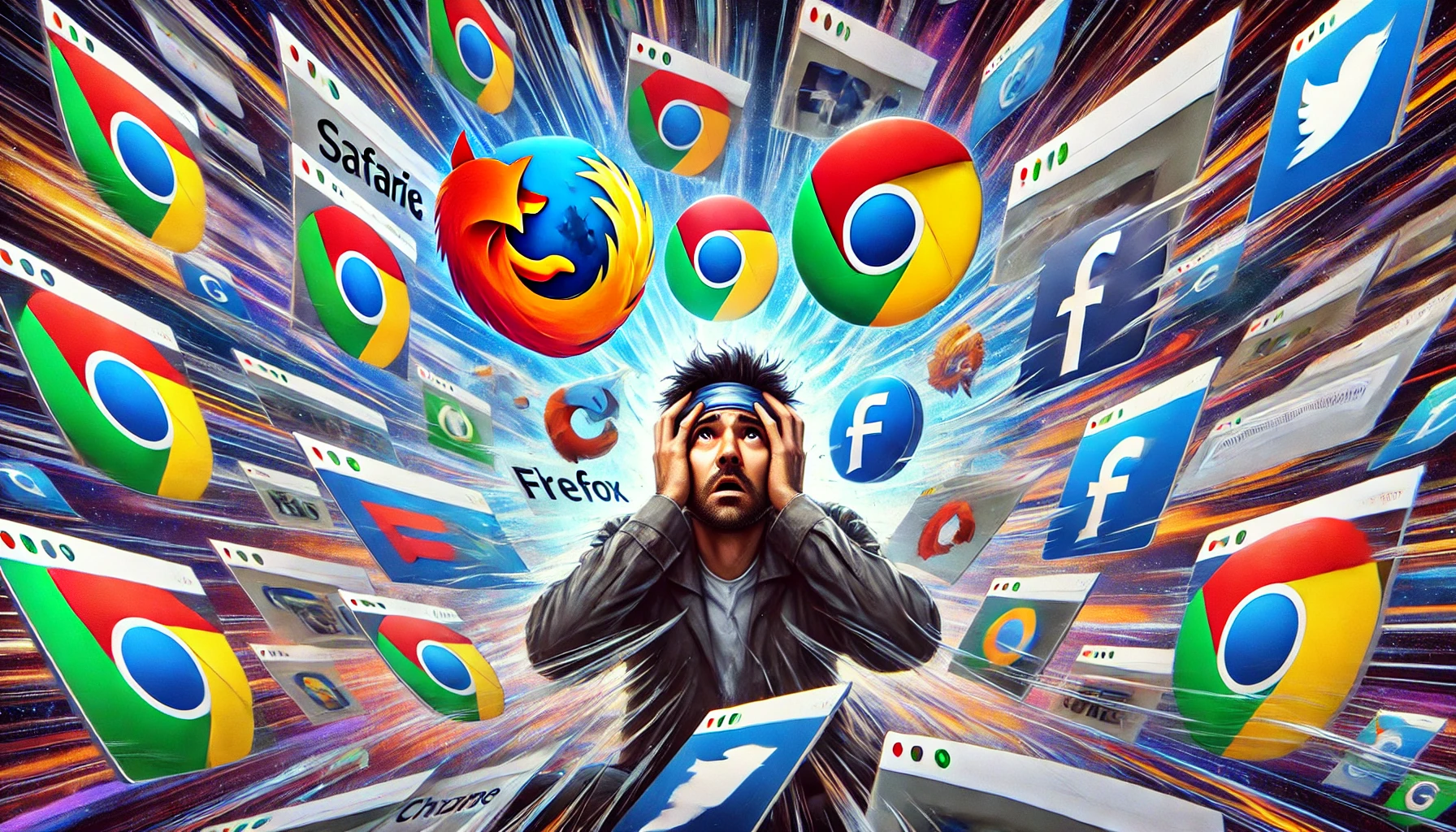I’m a software developer. I build things for the web. I write code.
I understand how browsers work.
And yet, somehow, choosing a default browser nearly broke me.
It wasn’t supposed to be this complicated. It’s just a browser.
A glorified tab holder. A tool to open Stack Overflow, forget why I opened it, and then open another tab instead.
But the moment I tried to pick the one—the browser that would rule them all—I descended into a personal crisis so deep I started questioning reality itself.
Round 1: The iPhone Problem (Or: Apple’s WebKit Prison)
I thought I had a choice.
I really did.
I believed I could just install Chrome or Firefox on my iPhone and live a normal life.
What a fool I was.
Because Apple, in its infinite wisdom, doesn’t actually let you use a real browser on iOS.
No matter what I install—Chrome, Firefox, Brave, Edge, Vivaldi, Opera, or a browser hand-coded by an underground group of free software rebels—they’re all WebKit underneath.
Which means every browser on iPhone is just Safari wearing a cheap disguise.
- Chrome? Safari with Google Sync.
- Firefox? Safari with different branding.
- Brave? Safari with a tinfoil hat.
There is no escape. Safari is the law.
I tried resisting. I tried using Chrome on my iPhone, convincing myself it was different.
It wasn’t.
The pages loaded the same. The bugs were the same.
The only difference? A Google logo and more tracking.
At some point, I accepted my fate. If everything is WebKit, I might as well use the original.
Fine. Safari wins on iPhone.
Not because I love it, but because Apple made sure that fighting it would be a slow, battery-draining death.
Round 2: The Windows Browser Crisis (Or: Where Every Browser is the Same Anyway)
On Windows, the situation should be better. No WebKit dictatorship. No artificial restrictions. Freedom.
Or so I thought.
In reality, every Windows browser is just Chromium with different personality issues.
- Chrome – The original Chromium overlord. Fast, powerful, but eats RAM like it’s a competitive sport and makes you sign into a Google account just to exist.
- Brave – Chrome, but constantly reminding you that it’s better than Chrome. Also, why does it keep asking me about crypto?
- Vivaldi – For people who think customizing a browser is a personality trait.
- Opera – Who even uses Opera? Who are you people? Reveal yourselves.
- Firefox – The only non-Chromium option, so I wanted to love it. But somehow, it makes every website feel slightly off, and the font rendering gives me trust issues.
At this point, I realized something horrifying.
Every time I tried a new browser, I ended up back in Chrome’s arms.
Not because I wanted to, but because the entire web is optimized for Chromium.
I wanted to love Firefox. I even tried convincing myself that the slightly-off fonts were a feature.
But in the end, it just made me feel like I was in an alternate universe where everything was almost right… but not quite.
So, I gave up. If I had to use Chromium, I might as well use the version that’s optimized for Windows and doesn’t aggressively push Google services on me.
And that’s how Edge won by default.
Round 3: The Syncing Nightmare (Or: How I Glued This Mess Together)
So now I had:
- Safari on iPhone (because Apple won’t let me have nice things).
- Edge on Windows (because all Chromium browsers are the same, and Edge just integrates better).
But now came the real problem.
How do I sync bookmarks between two browsers that don’t want to talk to each other?
- Google wants me to use Chrome on everything like some kind of cross-platform cult.
- Apple wants me to use Safari on everything because I made the mistake of owning an iPhone.
- Microsoft wants me to embrace Edge fully and probably switch to Bing while I’m at it.
I refused to let any of them win.
So I hacked my way out with iCloud Bookmarks Extension for Edge.
- Now Safari and Edge share bookmarks like two kids forced to get along.
- I don’t need Google.
- I don’t need third-party syncing tools.
- And best of all, I can finally stop switching browsers every two weeks.
Final Thoughts: The Browser Wars Were a Lie
After all this research, testing, and questioning my life choices, I have one conclusion:
All browsers are terrible.
- Some track you aggressively.
- Some drain your battery.
- Some crash randomly.
- Some make you feel guilty for using them.
But in the end? A browser is just a tool.
The best one is the one that gets in your way the least.
For me, that means:
✔ Safari on iPhone (because fighting Apple is exhausting).
✔ Edge on Windows (because if all Chromium browsers are the same, I might as well pick the one with better Windows integration).
✔ iCloud Sync (because I refuse to let Google own my bookmarks).
Is it perfect? No.
Is it better than switching browsers every week? Yes.
Will I probably change my mind in six months? Also yes.
Because let’s be real—the moment you finally settle on a setup, something new comes along to break everything.
